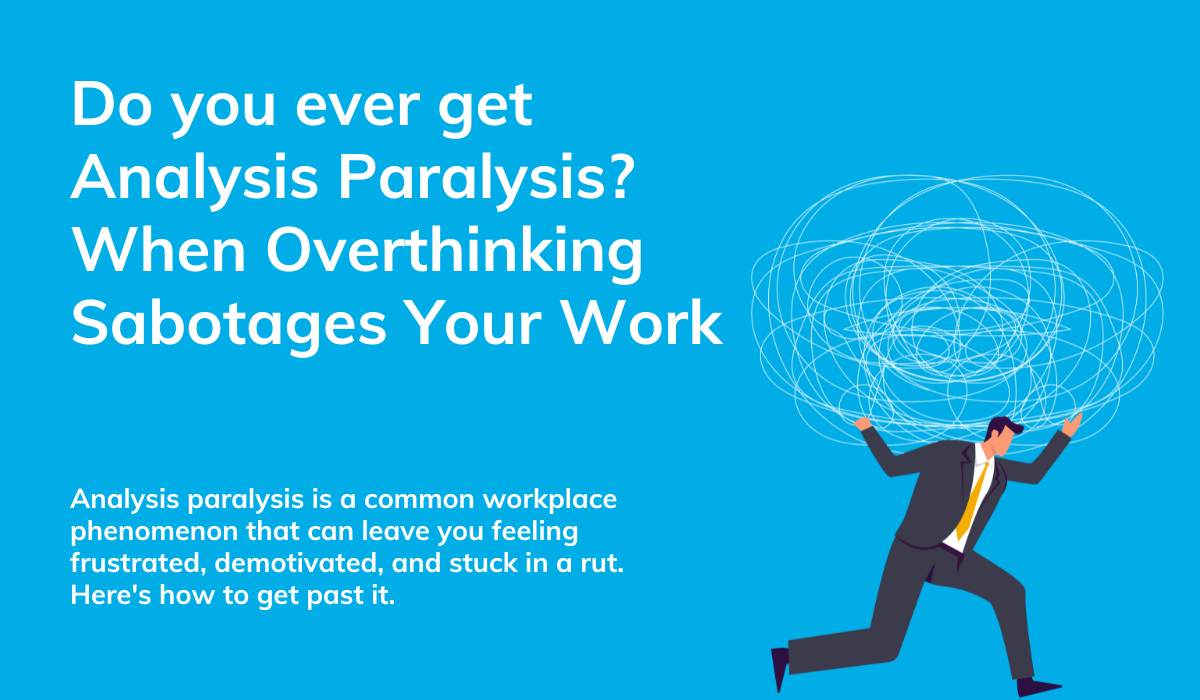If you’ve ever found yourself staring at a blank screen, drowning in a sea of research, or endlessly debating the pros and cons of different approaches, you’re not alone. This can happen in your personal life and at your place of work, when a project deadline is looming and you still haven’t started. Analysis paralysis is a common workplace phenomenon that can leave you feeling frustrated, demotivated, and stuck in a rut.
What is Analysis Paralysis?
Analysis paralysis is a state of debilitating overthinking. It happens when your desire for the perfect solution, backed by the perfect plan, leads to inaction. You become so obsessed with gathering information, weighing every possible scenario, and trying to predict all the outcomes that you end up doing nothing at all.
Why is it a Problem in the Workplace?
Analysis paralysis is a problem for several reasons:
Missed deadlines: Projects stall, leading to missed deadlines and potential lost opportunities.
Diminished productivity: You end up spending more time worrying than actually doing the work.
Increased stress: The weight of procrastination and anxiety builds as you fall behind.
Loss of confidence: When you continually avoid making decisions, your confidence can suffer.
Here’s how you can overcome Analysis Paralysis:
The good news is that you don’t have to let analysis paralysis control your work life. Here are a few strategies to help you break free:
Set Imperfect Standards: Aim for “good enough” rather than perfect. Perfection is often the enemy of progress.
Break Tasks Down: Subdivide large projects into smaller, more manageable chunks. This can make them feel less intimidating.
Establish Deadlines: Give yourself specific deadlines for each stage of the project, and try your best to stick to them.
The Power of “Go”: Sometimes, you just have to start. Starting a project with an imperfect first draft can shift your focus to progress.
Embrace Failure: Recognise that mistakes are a part of the learning process and don’t define you.
Ask for Help: Don’t be afraid to consult a colleague, mentor, or manager if you feel stuck. Sometimes a fresh perspective can provide valuable insight.
Ready, set, go!
If you find yourself consistently struggling with analysis paralysis, consider seeking professional support. A therapist or coach can help you identify the underlying causes of your overthinking and develop strategies tailored to your specific needs.
Remember, the best way to overcome analysis paralysis is to take action. Don’t let fear of the unknown or the quest for perfection prevent you from reaching your goals. Start small, celebrate your wins, and watch your confidence grow!
Share this article with a friend or colleague who may need to read this today!


